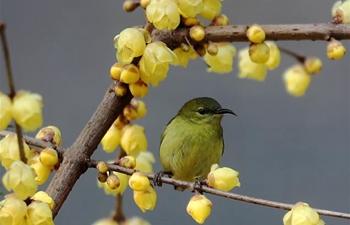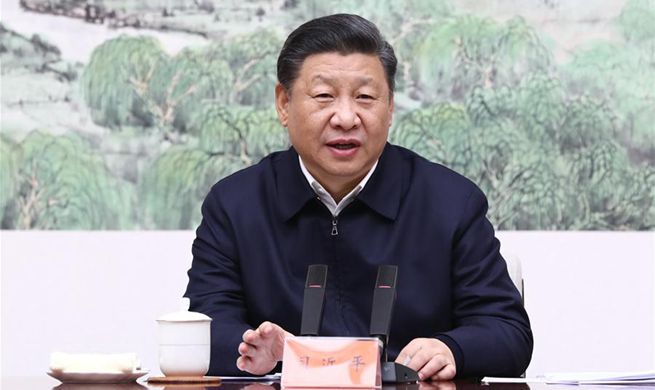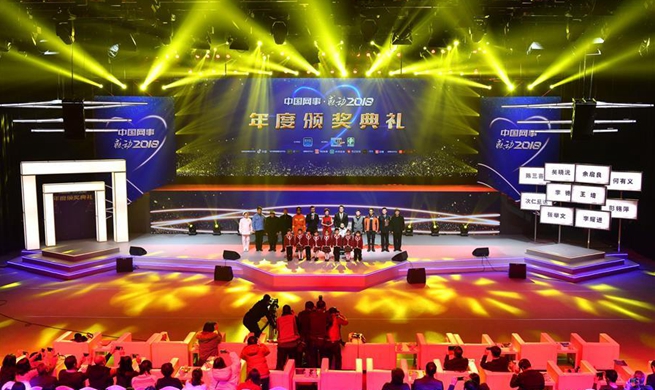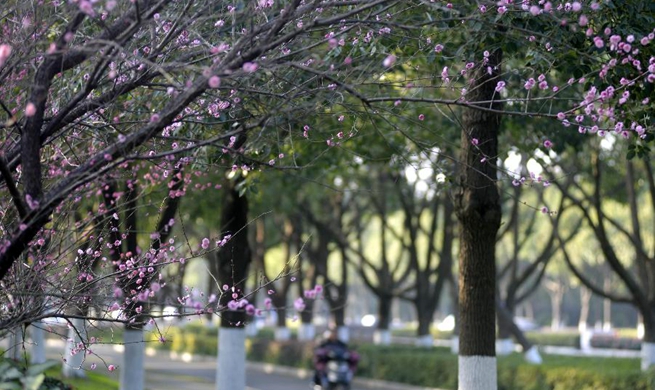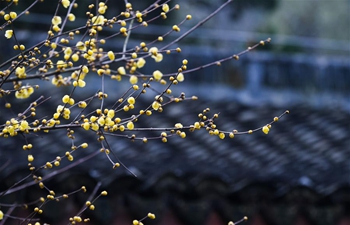by Gao Yang, Dana Halawi
BEIRUT, Jan. 18 (Xinhua) -- China's Belt and Road Initiative (BRI) has generated positive influences on economy in the Arab world, said Lebanese experts in light of the upcoming Arab Economic and Social Development Summit in Beirut.
"We started to feel the positive impacts of the initiative in the Arab world at all levels," Mahmoud Raya, editor-in-chief of "China in Arab Eyes" news website, told Xinhua.
Scheduled on Jan. 19-20, the Arab economic summit in Beirut addresses economic and social development among Arab League member states. Besides the hot regional issues, the growing influence of China's BRI on Arab economy is also widely discussed among local experts.
Raya emphasized that trade between the Arab world and China has remarkably increased, citing that the United Arab Emirates (UAE) has become the second largest trade partner with China with a volume of trade exchange that mounted to 41 billion U.S. dollars in 2017.
"The UAE, for instance, has become a hub for Chinese companies and businesses in the Arab region," he said, adding that the UAE and China have recently signed a currency swap deal to facilitate trade between the two sides.
Over the past few years, there has been a noticeable increase in the number of summits and events gathering Arab and Chinese officials to enhance economic and political relations among them.
The total volume of trade exchange between Arab states and China reached 192 billion dollars in 2017, according to previous remarks from Arab League Assistant Secretary General Hossam Zaki.
Proposed by China in 2013, the BRI refers to the Silk Road Economic Belt and the 21st Century Maritime Silk Road, aimed at building a trade and infrastructure network connecting Asia with Europe and Africa through the revival of ancient trade routes.
Within the framework of the initiative, China and Arab states have carried out several joint projects and investments, including power plants, businesses, factories, industrial zones and infrastructure projects in Egypt, Saudi Arabia, the UAE, Tunisia, Morocco, Sudan, and Oman.
"Lebanon is also important for China as a gate for the Chinese companies that seek to take part in rebuilding Syria," Raya said.
For his part, Nabil Srour, a Lebanese writer and researcher of international affairs, said that China helps many Arab countries construct their infrastructures.
Srour, author of a book on the Chinese development experience, illustrated that China helped Sudan build a bridge spanning over the Nile River and contributed to road construction in Somalia.
China also sent experts to Sudan, Morocco, Tunisia, Libya, Algeria, Mauritania, and Yemen to offer financial and advisory support to develop economy in these Arab countries.
"All Arab countries have opened channels with China but a whole network of maritime and land roads must be created to fully benefit from the interconnection," Srour told Xinhua.
According to China's first "Arab Policy Paper" issued in 2016, Arab countries as a whole have become China's biggest supplier of crude oil and the seventh biggest trade partner.
Lebanese political researcher Adnan Bourji said that the BRI brings mutual benefits to both sides as Arab countries have recently witnessed economic improvement thanks to their growing cooperation with China.
"China helps with the construction of infrastructures and provides training for Arabs, while importing oil, gas, minerals, and raw materials from the Arab world," Bourji said.
Boosting mutual trade and cooperation among Arab states has always been the focus of previous Arab economic summits and it is a key topic on the agenda of this year's summit in Beirut.
Bourji believes that inter-Arab cooperation is necessary for better Arab cooperation with China.
"Arab states have complementary resources and their unity and cooperation with China will reduce Western pressures and empower both side," Bourji told Xinhua.




